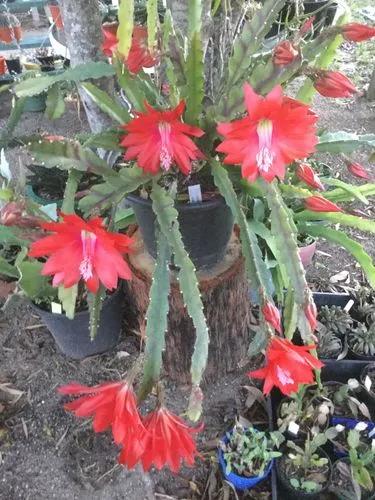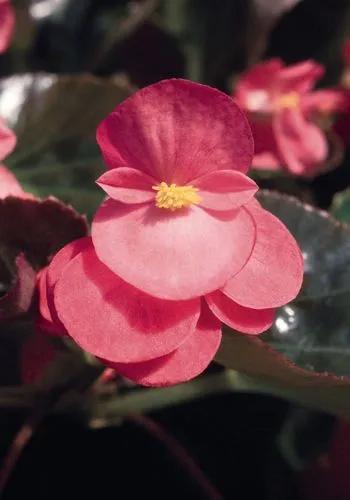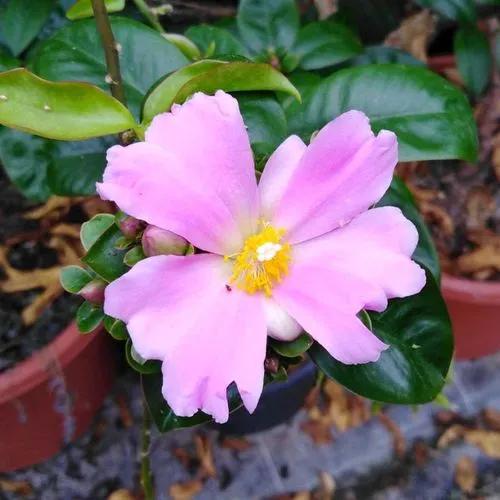Selenicereus anthonyanus is a cactus species native to southern Mexico. It is grown as an ornamental because of its nocturnal flowers and leaf-like stems. Common names are fishbone cactus, rick rack cactus, zig-zag cactus and St. Anthony's rik-rak.
Cryptocereus anthonyanus Care
Selenicereus anthonyanus



Selenicereus anthonyanus is an easy, fast growing epiphyte plant. It is most frequently cultivated as a house plant (in pots and hanging baskets). It rarely planted outdoors in tropical countries, where climbs trees in a semi-naturalized state. In nature it climbs into trees. Older plants in the greenhouse buds freely. It can be trained to climb a trellis, but looks best in a hanging basket from whence the lightning-shaped leaves will dangle 60- 90 cm over the edge. Because the flowers are so quickly spent, this epiphyte is mainly only grown for the strange leaves which lend it the common name Ric-Rac Cactus, or occasionally Zig-Zag or Fishbone Cactus.
How to Care for the Plant

Water

Like most cacti, fishbone cactus houseplant does best when allowed to dry out between watering. During winter, cut watering in half and then reinstate when spring growth begins.

Pruning

Dead fronds and leaves can be removed.

Fertilizer

Fertilize with a water-soluble cactus or orchid fertilizer in early spring.

Sunlight

They do not like full sun and many of them will become very damaged or will not survive very long when they receive too much direct sunlight. Instead, expose them to indirect, filtered sunlight. A shady location with several hours of bright but indirect light will suit this plant the best.

Soil

Does best in conventional potting soils that contain ingredients such as peat, manure, and black hummus.

Temperature

This plant should not be kept under 5ºC (41ºF) in winter.

Container

Ceramic pots are the most popular type of containers for houseplants today. You'll find them in all kinds of styles, colors, and sizes. At one time, the clay pot was the most common container for indoor plants. When choosing a pot, choose a pot that is 2.5-5 cm (1-2”) larger than the current size.

Popularity

7,425 people already have this plant 1,050 people have added this plant to their wishlists
Discover more plants with the list below
Popular articles






